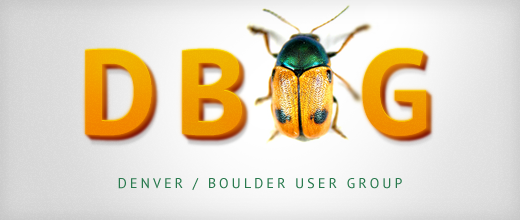
Thanks to Denver Open Media, the Denver Drupal meetup made its live television debut this month! While we're waiting for Nielsen to confirm our huge TV following, we'd like to thank everyone who came to the meetup and participated.
After a round of introductions, Kevin kicked the meeting off with a great presentation on RDF. RDF is the Resource Description Framework and provides a way to describe information to make it easier to share and understand. The current state of the web is primarily oriented around distributed presentations - Information in the form of text, graphics, etc. is presented to users who consume the information. But parsing that presentation for computer consumption or reuse is often difficult. The future of the web is semantic and is oriented around distributed knowledge - RDF makes it easier to communicate information and much easier for disparate systems to reuse the information.
Information sharing isn't limited only to distributed systems or data import/migration. Kevin demonstrated that if you Google search for "pizza recipe", some of the search results display ratings and photographs. That's RDF in action! RDF allows you to describe ratings and related content, then communicate those to Google so they can be used in search results. While Google has not confirmed if RDF influences page ranking, exposing additional information in your results is certainly more helpful to searchers than the standard result data. You can read more about how Google can use RDF in your site here and here.
The best part about RDF is that, with Drupal 7, it's easy! The RDF module is included in core and is automatically enabled when performing a standard Drupal 7 install. For Drupal 6, you can install the RDF module. The slides from Kevin's presentation are available here.
Following Kevin's RDF presentation, Andy continued the Drupal 7 theme by highlighting his work on www.cpandm.net, which he recently built with Drupal 7. Although many modules that Drupal 6 users are familiar with are only available as development, alpha or beta versions in Drupal 7, Andy noted that in his experience, those modules often worked with little or no problems and shouldn't frighten users away from using Drupal 7. Some of the modules used for the site include: Views Slideshow, Colorbox and Flag
Drupal is officially moving away from CVS and adopting Git for version control, so Al closed the meeting with a presentation on using Git and what we can expect with it in terms of Drupal.org. From a Drupal perspective, many practices will remain the same: Users will still need to apply to create official contributed projects, branches will be tagged and maintainers will still administer their project pages. One of the big changes is that all drupal.org registered users will have Git accounts which they can use to get the latest code from projects or add code to their own sandbox repositories. Git uses SSH to securely transfer files and to support that, you can add your SSH public key to your Drupal.org profile (from your drupal.org account page, click Edit, then Personal Information) to allow Git to use SSH key based authentication. If you already have a Drupal.org CVS account, be sure to read the Git migration announcement for instructions on making the switch. You can view the slides from Al's presentation and find additional Git resources at Drupal.org.
Although we don't give out new cars or other fabulous gifts like Oprah, we'd love to have you join us in the "studio audience" at the next Denver Drupal meetup! More information about meetups can be found at the DBUG groups page. A video of this meetup will be posted on the Denver Open Media website soon, but until then, you can watch the January Denver Drupal meetup video.